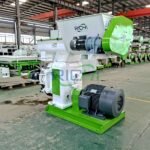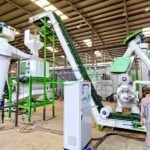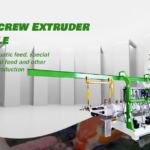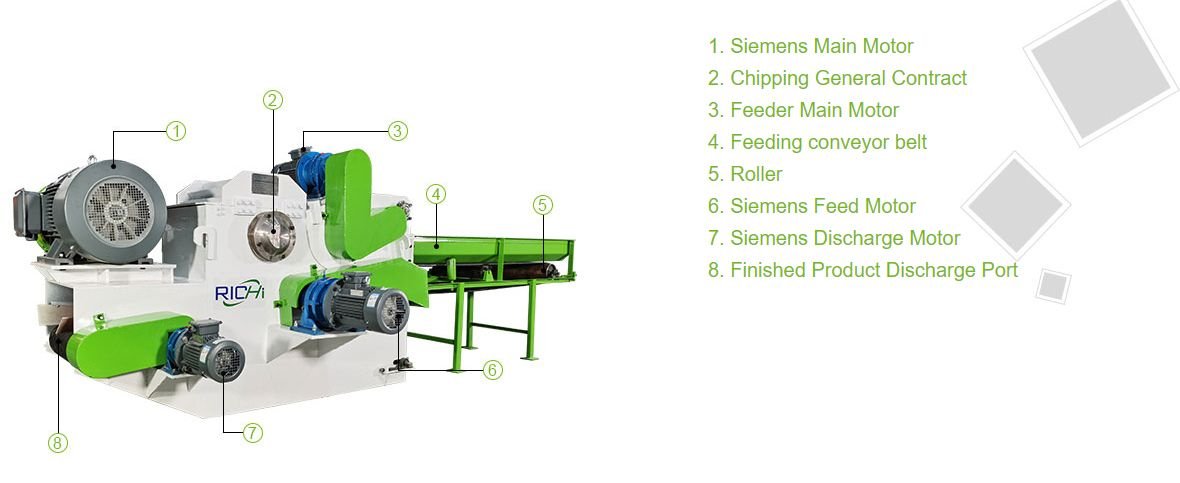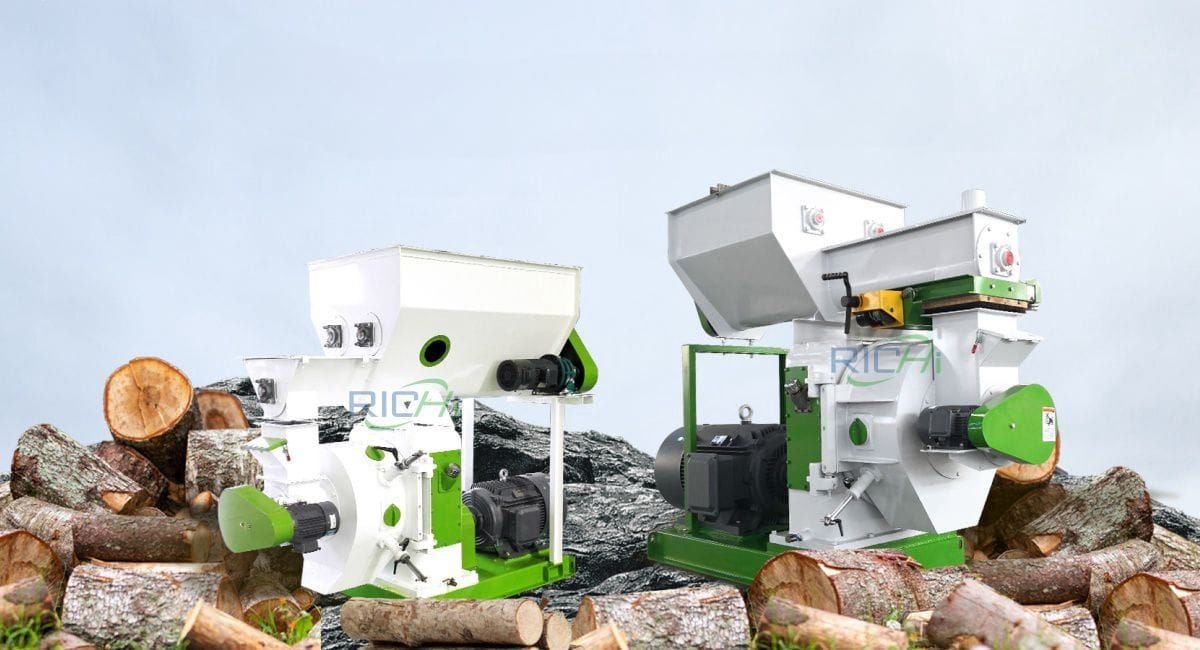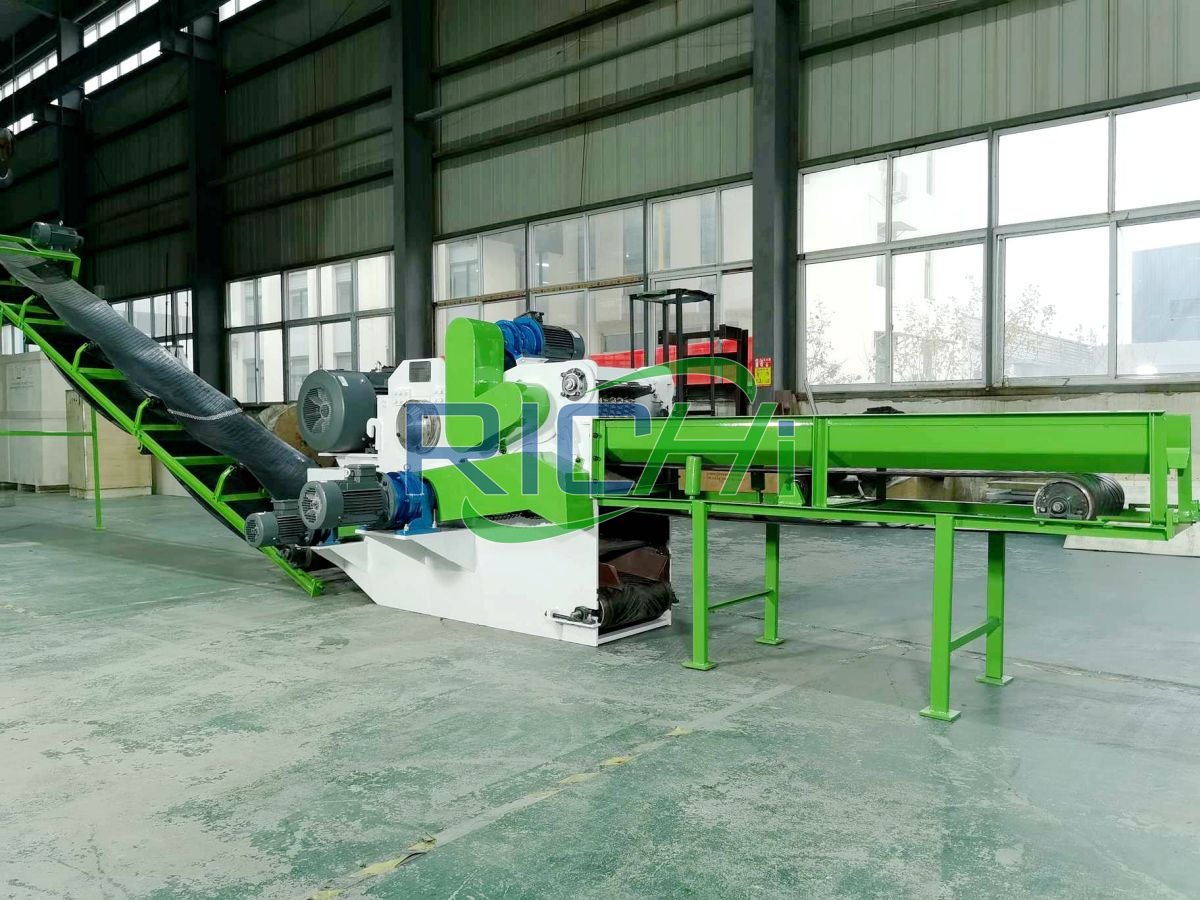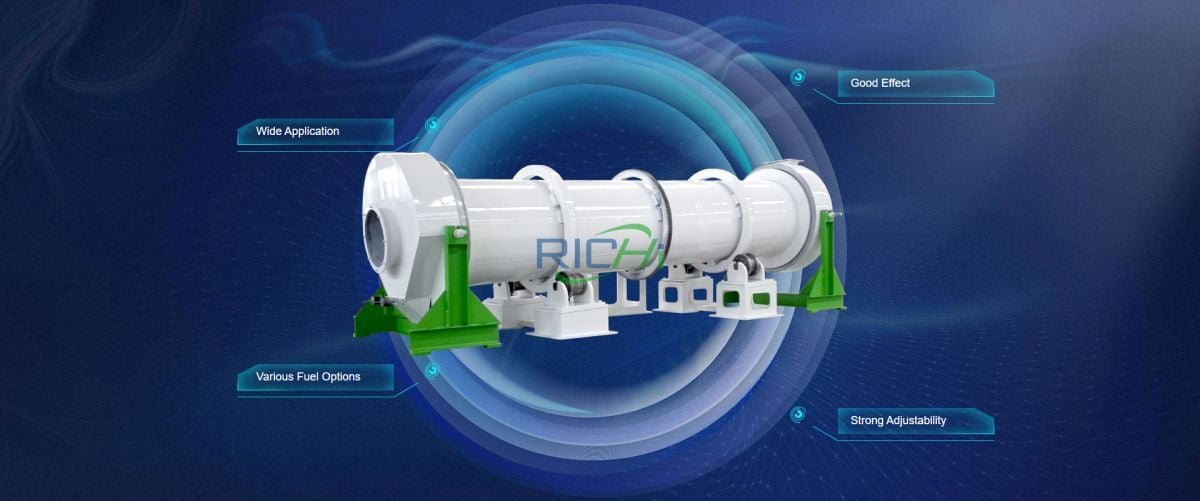Wood chipper machines are essential tools for various industries, including landscaping, forestry, and waste management. These machines efficiently process wood and organic materials into smaller, more manageable pieces. However, the price of wood chippers can vary significantly based on several factors. This article explores the price range of wood chipper machines, factors influencing their cost, and considerations for potential buyers.
Types of Wood Chippers and Their Price Ranges
Wood chippers come in various types and sizes, each designed for specific applications. The price range for each type can vary considerably:
- Residential/Light-Duty Chippers
- Price Range: $200 – $2,000
- These are typically smaller, portable units suitable for home use or small landscaping jobs.
- Example: The MacKissic Mighty Mac 12P Chipper Shredder, priced around $1,500, is a popular choice for homeowners.
- Commercial/Medium-Duty Chippers
- Price Range: $2,000 – $20,000
- These are more powerful machines suitable for professional landscapers and small tree services.
- Example: The Vermeer BC700XL Brush Chipper, with a 25 HP engine, is priced around $15,000 to $18,000.
- Industrial/Heavy-Duty Chippers
- Price Range: $20,000 – $100,000+
- These are large, high-capacity machines used by professional tree services and municipal departments.
- Example: The Vermeer BC2100XL Tier 4 Final Brush Chipper, with a 275 HP engine, can cost upwards of $80,000.
Related post:https://www.richipelletmachine.com/wood-pellet-hammer-mill/
Factors Influencing Wood Chipper Prices
Several factors contribute to the wide price range of wood chipper machines:
- Engine Power and Type
- Higher horsepower engines generally result in higher prices.
- Diesel engines are typically more expensive than gasoline engines.
- Chipping Capacity
- Larger chipping capacities, measured by the maximum diameter of wood that can be processed, command higher prices.
- For instance, a 6-inch capacity chipper will be significantly less expensive than an 18-inch capacity model.
- Feed System
- Hydraulic feed systems, which are more efficient and safer, increase the price of the machine.
- Manual feed systems are less expensive but require more labor.
- Mobility and Mounting Options
- Trailer-mounted chippers are more expensive than standalone units.
- Self-propelled chippers, which can move around job sites independently, command premium prices.
- Brand and Quality
- Well-known brands with reputations for quality and durability, such as Vermeer, Bandit, and Morbark, often have higher price points.
- Lesser-known brands may offer lower prices but potentially at the cost of reliability or performance.
- Additional Features
- Features like auto-feed systems, remote controls, and advanced safety features can significantly increase the price.
- For example, Vermeer’s SmartFeed system, which optimizes feeding and reduces engine stress, adds to the cost of their chippers.
- New vs. Used
- Used wood chippers can be significantly less expensive than new models.
- For instance, a used commercial-grade chipper might be available for 40-60% of the cost of a new equivalent model.
Price Examples from Leading Manufacturers
To provide a more concrete understanding of wood chipper prices, let’s look at some specific models from leading manufacturers:
- Vermeer
- BC700XL (25 HP): $15,000 – $18,000
- BC1000XL (74 HP): $30,000 – $35,000
- BC2100XL (275 HP): $80,000+
- Bandit Industries
- Model 65XP (25 HP): $15,000 – $20,000
- Model 250XP (122 HP): $45,000 – $55,000
- Model 3590 (540 HP): $200,000+
- Morbark
- Beever M12R (35 HP): $20,000 – $25,000
- Beever M15R (130 HP): $40,000 – $50,000
- Beever M20R (275 HP): $90,000+
Considerations for Buyers
When considering the purchase of a wood chipper, buyers should take into account several factors beyond just the initial price:
- Operational Costs
- Fuel efficiency can significantly impact long-term costs, especially for frequently used machines.
- Maintenance requirements and the cost of replacement parts should be factored in.
- Productivity and Efficiency
- A more expensive, higher-capacity chipper might be more cost-effective in the long run for high-volume operations.
- Consider the time savings and increased productivity that a more advanced machine might offer.
- Versatility
- Some chippers can handle a wider range of materials, which might justify a higher price for operations that process diverse types of wood waste.
- Longevity and Resale Value
- Higher-quality machines from reputable brands often have better longevity and higher resale values, which can offset the initial higher cost.
- Financing Options
- Many manufacturers and dealers offer financing options, which can make higher-end machines more accessible.
- Leasing options are also available, which can be advantageous for businesses with fluctuating needs.
- Regulatory Compliance
- Ensure that the chipper meets local noise and emission regulations, as non-compliant machines might require costly modifications.
Alternative Options
For those finding new wood chippers too expensive, there are alternative options:
- Rental
- Renting a wood chipper can be cost-effective for occasional use or specific projects.
- Rental prices can range from $100 to $500 per day, depending on the size and capacity of the machine.
- Used Equipment
- The used market offers significant savings, but buyers should be cautious and thoroughly inspect any used machine before purchasing.
- Contracting Services
- For infrequent needs, hiring a tree service company with their own equipment might be more cost-effective than purchasing a chipper.
Conclusion
The price of wood chipper machines varies widely, from a few hundred dollars for small residential models to hundreds of thousands for large industrial units. The cost is influenced by factors such as engine power, chipping capacity, brand, and additional features. Buyers must carefully consider their specific needs, operational requirements, and long-term costs when selecting a wood chipper.
While the initial investment in a quality wood chipper can be substantial, the right machine can significantly enhance productivity and efficiency in wood processing operations. By thoroughly researching options, considering long-term costs and benefits, and exploring alternative solutions like rentals or used equipment, buyers can find a wood chipper that fits both their operational needs and budget constraints.
For details please contact: wood pellet machine
WhatsApp:86 138 3838 9622
Email:enquiry@richipelletmachine.com


